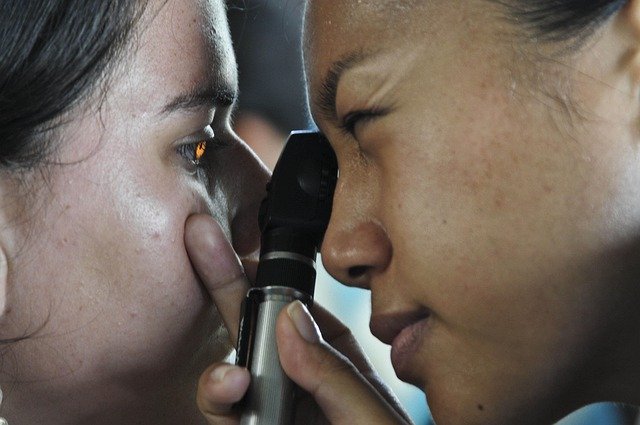Five Key Early Symptoms and Warning Signs of Colon Cancer in the United States 2025
Colon cancer is common in the United States but often treatable when found early. Recognizing warning signs can improve outcomes. This article outlines five early symptoms to watch for, aiming to encourage timely medical evaluation that may enable earlier diagnosis and patient survival.

Ongoing Changes in Bowel Habits
A common early indicator of colon cancer is persistent and noticeable changes in bowel habits lasting several weeks. Such changes might involve:
- Alternating bouts of diarrhea and constipation
- Alterations in stool texture or consistency
- Stools that appear thinner or narrower than usual
Adults aged 45 and older, especially those with a family history of colon cancer in the United States, should seek medical advice if these changes occur without an obvious cause related to diet or lifestyle. These symptoms often indicate a disruption in normal colon activity, possibly due to developing polyps or tumors.
Blood in Stool or Rectal Bleeding
The detection of blood in the stool—whether bright red or very dark—or any rectal bleeding is a significant red flag that should never be overlooked. Blood can also cause stools to look black or tar-like, a condition known as melena. Although hemorrhoids and anal fissures are common causes of bleeding, persistent or unexplained rectal bleeding calls for evaluation to rule out colon cancer.
Health professionals in the United States advise that individuals experiencing rectal bleeding, especially if it lasts more than three weeks, pursue diagnostic screening. Early detection is vital since bleeding often signals underlying tissue damage or malignancy in the colon or rectum.
Unexplained Fatigue and Weight Loss
Sudden and unexplained weight loss of 10 pounds or more coupled with ongoing fatigue can serve as early signs of colon cancer. Cancerous cells consume vital nutrients the body requires for energy, leaving affected individuals feeling weak and exhausted.
Though these symptoms can be attributed to various health issues, when seen alongside other warning signs or risk factors such as age and family history, they warrant medical evaluation. In the United States, the pair of unexplained fatigue and weight loss is considered a significant concern.
Ongoing Abdominal Discomfort
Persistent abdominal discomfort, including pain, cramping, bloating, gas, or a feeling of incomplete bowel evacuation, might suggest early-stage colon cancer. These symptoms can last for several days or more and often do not have an apparent cause.
Adults over 45 or those with increased risk factors should not ignore prolonged abdominal symptoms, as they may indicate irritation or blockage from tumors in the colon. Healthcare providers can help distinguish harmless digestive issues from those needing further assessment.
Iron-Deficiency Anemia Without Obvious Cause
In the United States, iron-deficiency anemia—particularly in men and postmenopausal women—can be an early signal of colon cancer resulting from slow, chronic bleeding inside the colon. Anemia symptoms include:
- Fatigue and weakness
- Shortness of breath
- Pale skin or mucous membranes
This anemia often remains undetected until identified through routine blood work. People presenting with unexplained anemia and no clear cause are recommended to undergo colon cancer screening as part of a thorough diagnostic process.
The Importance of Awareness and Early Screening
Since colon cancer frequently shows no symptoms in its early stages, screening starting at age 45 is crucial, per U.S. medical guidelines. Individuals with family history or other risk factors—including certain ethnic groups such as American Indian, Alaska Native, and Black populations—should consider earlier or more frequent screenings in consultation with their healthcare provider.
Being alert to these symptoms and seeking medical evaluation if they persist longer than three weeks can enable diagnosis at a stage when treatment is more effective. While these signs might be related to less severe conditions, professional evaluation ensures appropriate care and reassurance.
Conclusion
As we move into 2025, understanding the top five early symptoms of colon cancer in the United States—persistent bowel habit changes, rectal bleeding, unexplained weight loss and fatigue, ongoing abdominal discomfort, and iron-deficiency anemia—provides crucial awareness. Detecting the disease early significantly boosts the chances of successful treatment. People aged 45 and above or those with risk factors should remain attentive and consult healthcare professionals if these symptoms develop.
Sources
- Centers for Disease Control and Prevention. (2024). Colorectal Cancer Statistics.
- American Cancer Society. (2025). Colorectal Cancer Early Detection and Diagnosis.
- Healthline. Everything You Need to Know About Colon Cancer.
- Em-Pulses. 5 Symptoms of Colon Cancer You Need to Know.
This article is for informational purposes only and is not a substitute for professional medical advice. Readers should consult healthcare professionals for personalized guidance. Prices and availability of medical services and screenings vary by location and provider.




